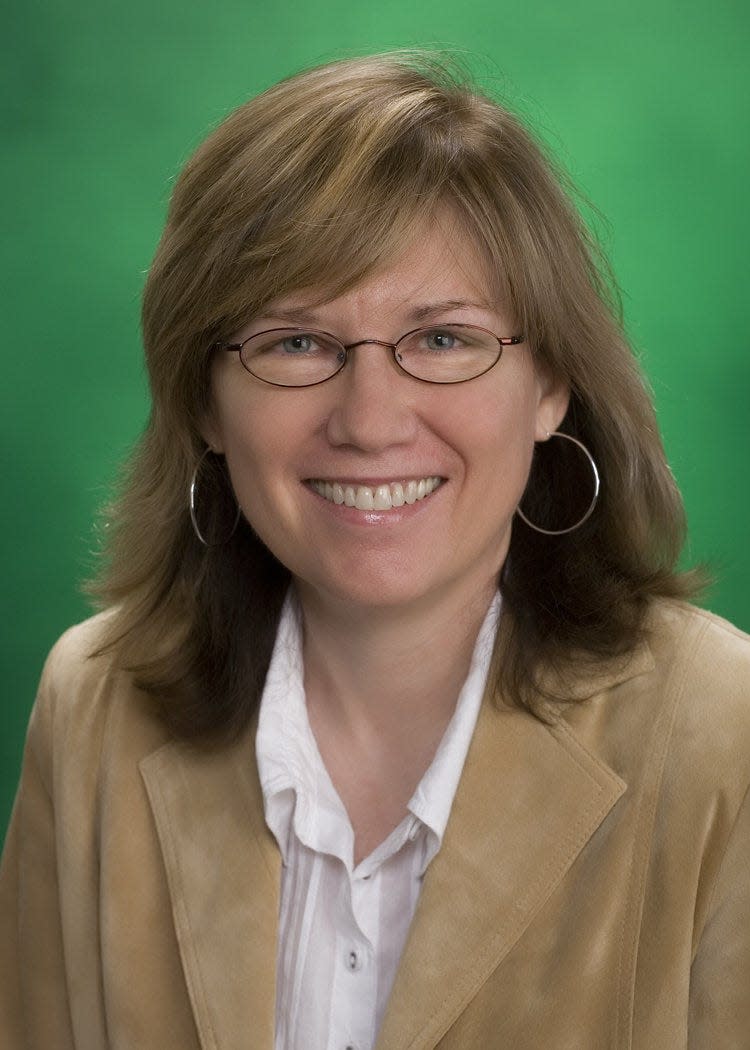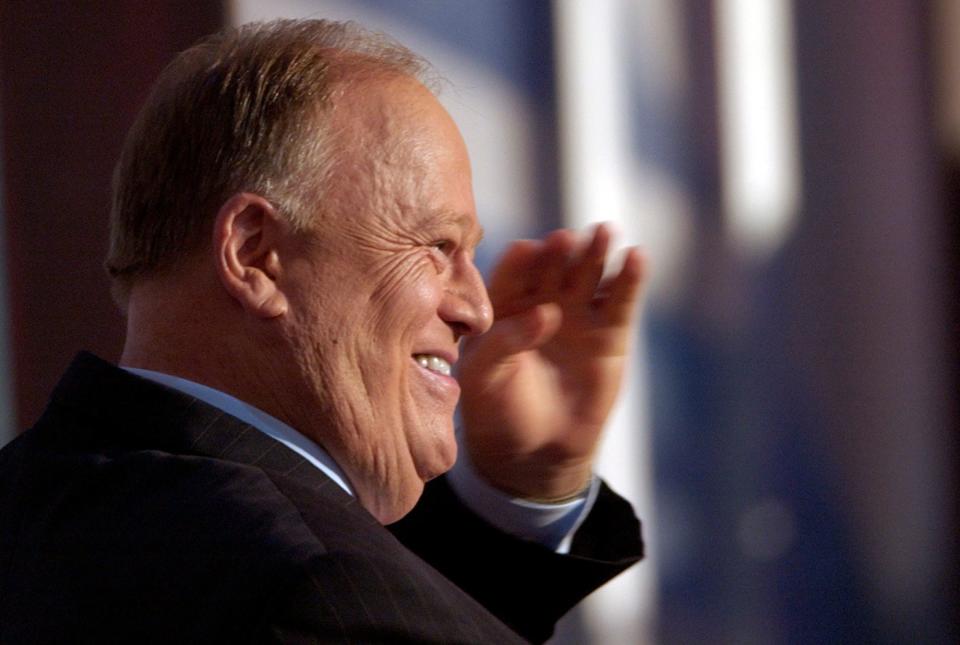In Max Cleland, we lost an American hero who found inspiration at Stetson
- Oops!Something went wrong.Please try again later.
Max Cleland didn’t arrive at Stetson University as the perfect student. It was 1960, and he had dreams of a Space Age teaching career in physics. But he didn’t even have enough math background to get into a basic physics class. He next turned to English, but was placed in remedial English classes.
More: Max Cleland dies at 79; former Georgia senator lost limbs in Vietnam

Finally, Cleland turned to the study of history as well as the mentorship of professors, particularly T. Wayne Bailey, PhD, who Cleland once described as having a “tremendous influence on me as a young man from [Lithonia] Georgia.” Max realized from that time on that he wanted a life of public service.
More: Mark Lane: Feeling the loss of Stetson's T. Wayne Bailey
Cleland would go on to graduate in May 1964 and, through the university’s ROTC program, be commissioned as a second lieutenant in the U.S. Army.
One of the core values of Stetson, written into its charter and mission, is dedication to the “whole person committed to engaging and building lifelong connections with the larger world through personal growth, intellectual development and global citizenship.”
With his passing Nov. 9 at age 79 — only three days before Veterans Day — that’s what Max Cleland left behind. A Stetson legacy.
Cleland established Stetson’s alumni leadership program. Stetson’s duPont-Ball Library is home to the Max Cleland Collection, with 4,000 pieces of his personal memorabilia. Cleland earned two honorary degrees from Stetson (in 1977 from the DeLand campus and in 2008 from Stetson’s College of Law in Gulfport), received Stetson’s Distinguished Alumni Award (in 1970), and the George and Mary Hood Award (in 2010).
For Stetson, like the university’s seal, first adopted some 130 years ago, Max Cleland is an emblem.
As Stetson President Christopher F. Roellke, PhD, commented on the day of Cleland’s passing, “Given our university’s rich tradition of helping students reach their full potential as citizens of local communities and the world, I can think of no better example than Max Cleland. … His legacy is one of great servant leadership.”
Indeed, Cleland was a multiple award recipient for combat valor as an Army captain in the Vietnam War. At age 25, in the Army’s 1st Cavalry Division, he lost both of his legs and his right arm in a grenade explosion. He then became the Georgia state senate’s youngest-ever member at 28 (1971-1975). He also served as administrator of Veterans Affairs (1977-1981), Georgia Secretary of State (1982-1996) and in the U.S. Senate (for Georgia, 1997-2003), among other national roles. His final public service was an appointment by President Obama as the secretary of the American Battle Monuments Commission (2009-2017), the guardian of America’s overseas cemeteries and memorials.
As dean of the Stetson Library, I have the privilege of serving as the curator of the Max Cleland Collection at the university. Max has always been available to anyone at Stetson who needed him. Mostly, though, he cared about the students. Just as he had been mentored at Stetson, Cleland served as a mentor to new generations of students.
A couple of years ago, several students were seated around a table in the library's archives, surrounded by papers and artifacts and obviously working on a group project. I walked past and noticed they were reading Cleland's diary from his year in Vietnam. They told me they were working on a project involving first-person accounts of the Vietnam War. I asked if they would like to speak with Max Cleland on the phone, with the thought, “Let's see if we can catch him."
Cleland picked up and sounded tired, but when I told him some Stetson students were working on a Vietnam project and could use his help, his voice got animated and stronger. Max asked each of the students their names, where they were from, and what they were majoring in at Stetson. With Max, it was always about the other person, not about him. The talk turned somber as he recounted some of his experiences at war. After about 15 minutes, I took back the phone and thanked him for taking the time. His response: “You tell those students I'm here for them. Whatever they need.”
That was Max Cleland.

Max often called himself a “pine nut” when he started at Stetson, and said that whether that pine nut had turned into anything was for others to judge. With the tributes pouring in from across the country, others have judged Max Cleland’s life as a life well lived.
On the day of his passing came these words from President Joe Biden: “He will be remembered as one of Georgia’s and America’s great leaders."
The same, in no uncertain terms, goes for Stetson University.
Susan M. Ryan is dean of the Stetson Library and curator of the Max Cleland Collection at Stetson University.
This article originally appeared on The Daytona Beach News-Journal: Stetson helped make Max Cleland, and Cleland made Stetson proud

